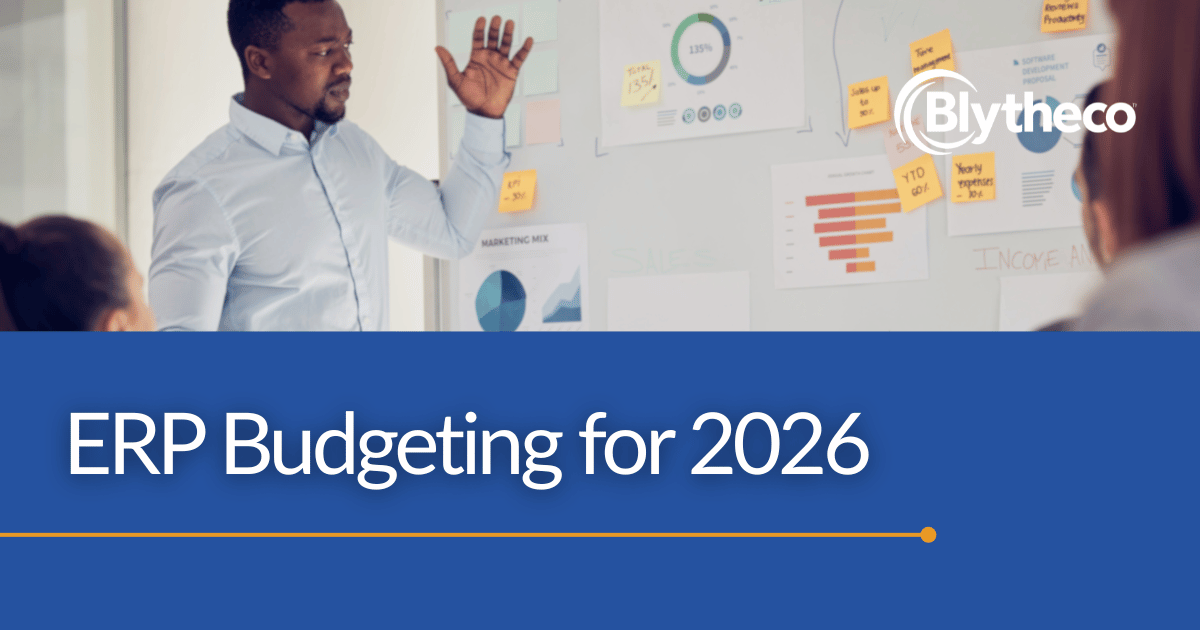


For many company finance and operation executives, the start of a new year centers around strategic software upgrades. If this is high on your priority list, you need accurate ERP budgeting for 2026. Capabilities and cost drive decisions. Prioritizing is essential for driving operational efficiency, maintaining a competitive edge, and mitigating technological and security risks.
In our experience working with Sage 100 clients, those who dedicate time early in the year to plan their technology budgets consistently find themselves better prepared, whether it’s for a planned upgrade, an unexpected change in licensing, or addressing new security requirements. One client recently shared, “When we finally committed to budgeting proactively, our upgrades went from stressful fire drills to smooth, well-timed improvements. It allowed us to focus on running our business instead of reacting to issues.”
These kinds of stories are common. Clients who proactively budget for ERP Budgeting for 2026 gain the benefit of predictable costs and demonstrate strategic foresight and operational readiness.
Proper planning minimizes unexpected costs related to licensing, upgrades, or emergency fixes, helping organizations avoid surprises. It ensures funds are available for necessary updates or enhancements, which keeps teams productive and maintains operational efficiency.
By aligning the software budget with organizational objectives, businesses can ensure that technology supports growth initiatives effectively. Additionally, accurate forecasting enables cost management by identifying opportunities for discounts, bulk licensing, or locking in prices before increases occur.
Outdated software can lead to compatibility issues, as it may not integrate with newer systems, causing disruptions and inefficiencies. Staying current with software updates is essential for several reasons. Regular updates often include patches for vulnerabilities, providing critical protection against cyber threats and enhancing security.
Upgrades also offer access to improved features that enhance performance, usability, and innovation. Additionally, vendors may discontinue support for older versions, leaving organizations without recourse if issues arise, further underscoring the importance of staying updated.
When you’re ready to move forward, we are here to assist you with gathering the information needed to build a smarter, more strategic ERP budgeting for 2026. Contact your Client Success Manager or Lead Consultant for assistance.